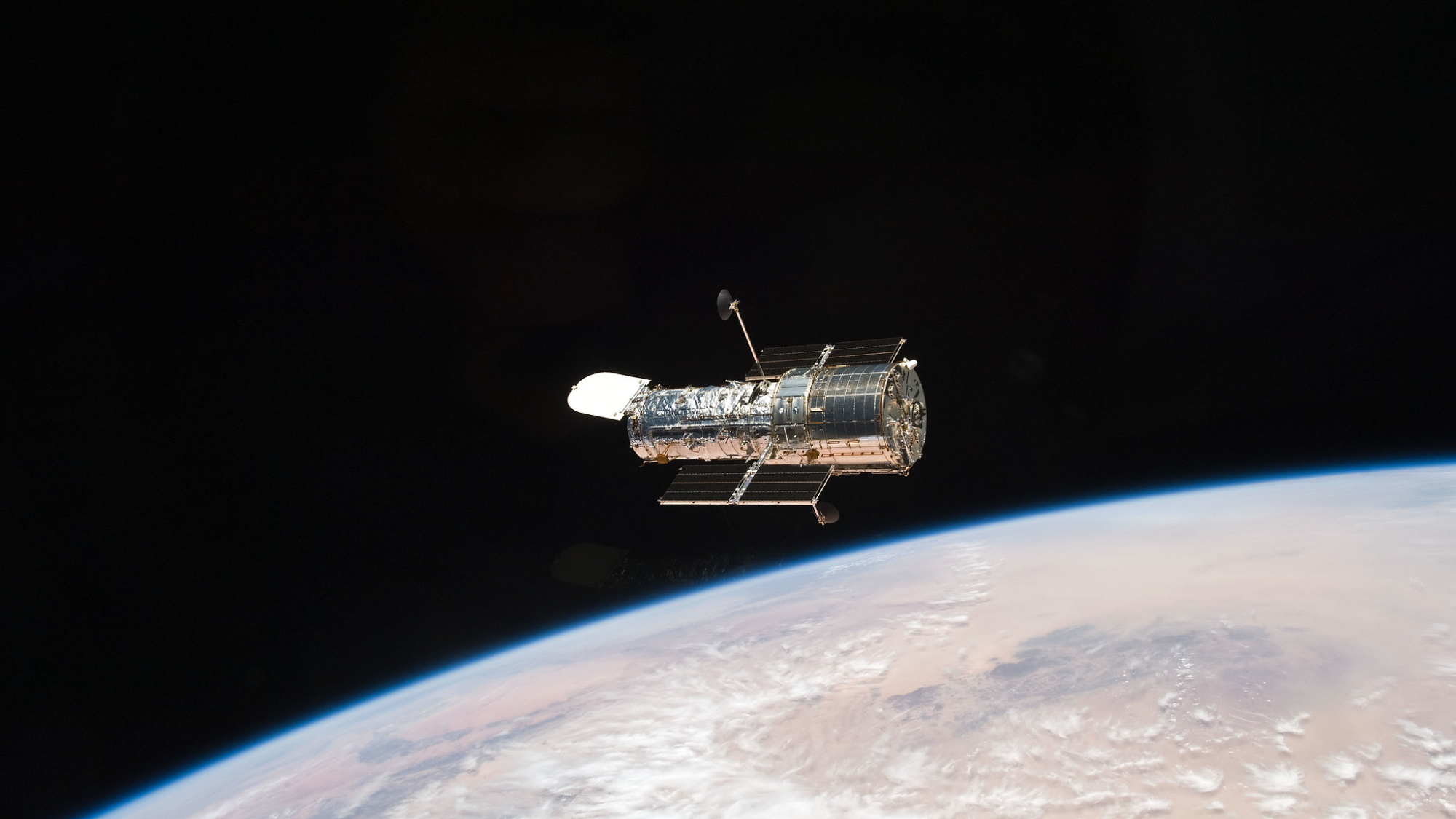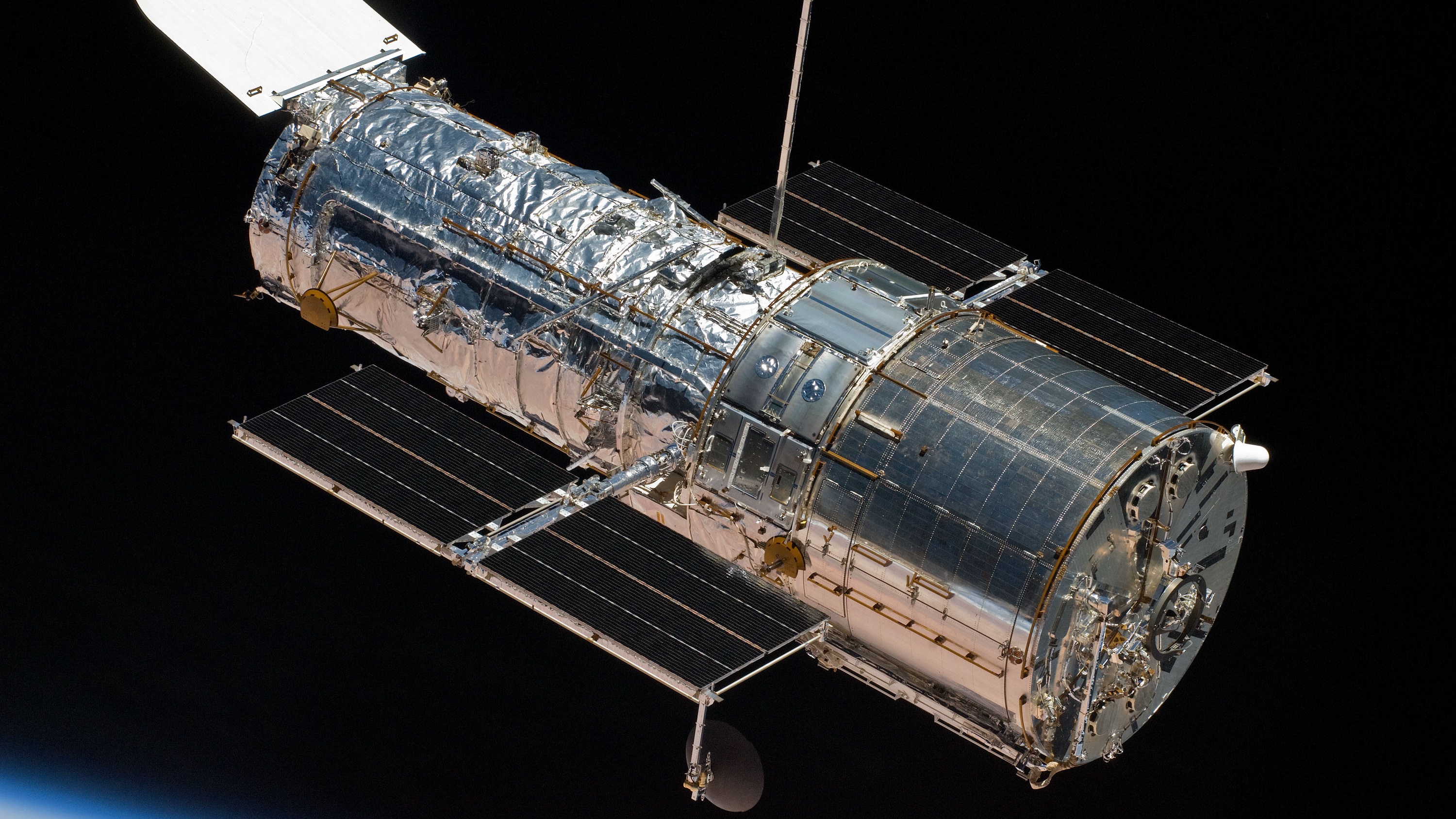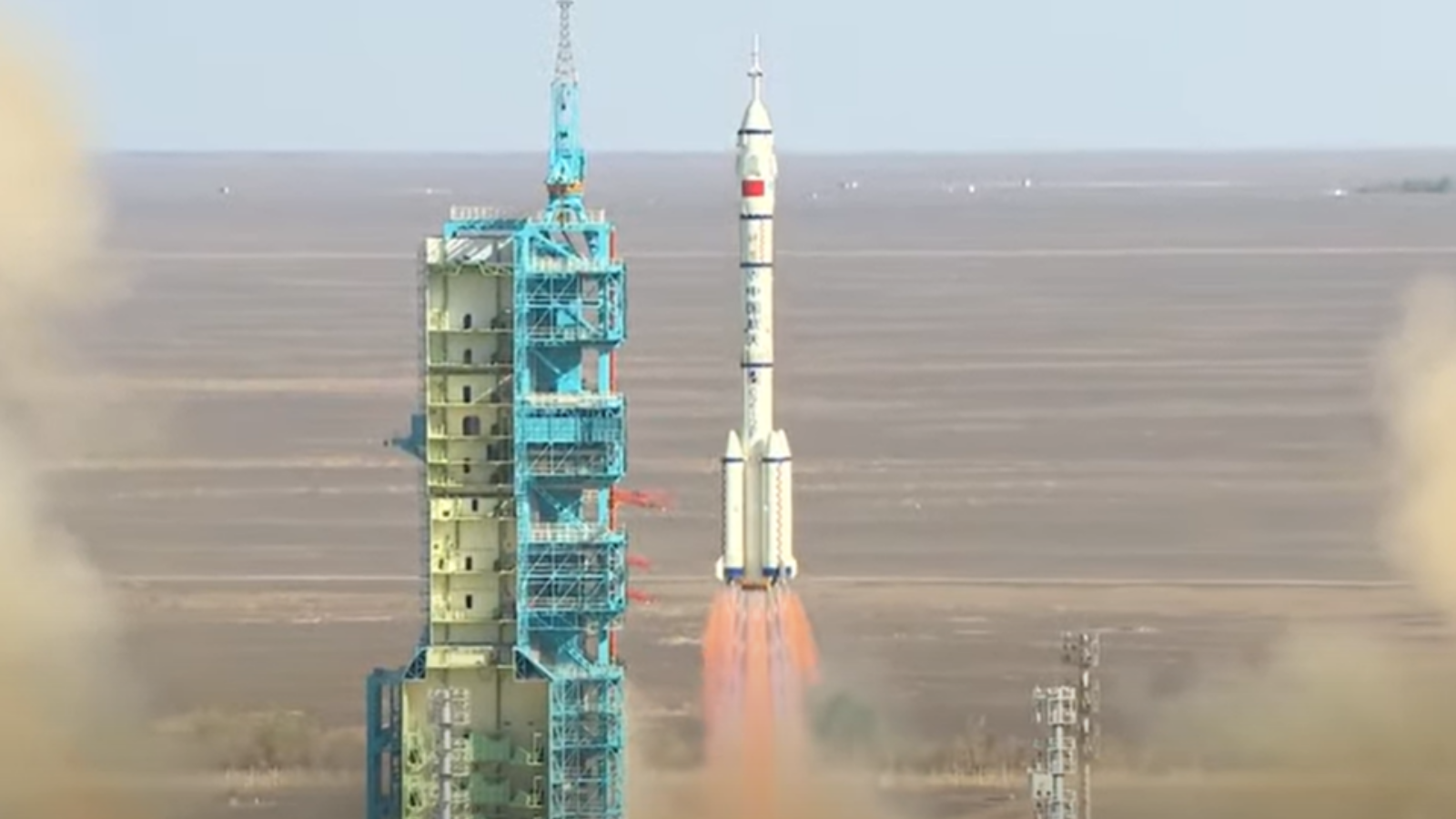Former US President Jimmy Carter dies at 100, but his voice continues 'into the cosmos'
Carter made few contributions to NASA history, but a key decision helped shape 30 years of U.S. spaceflight.
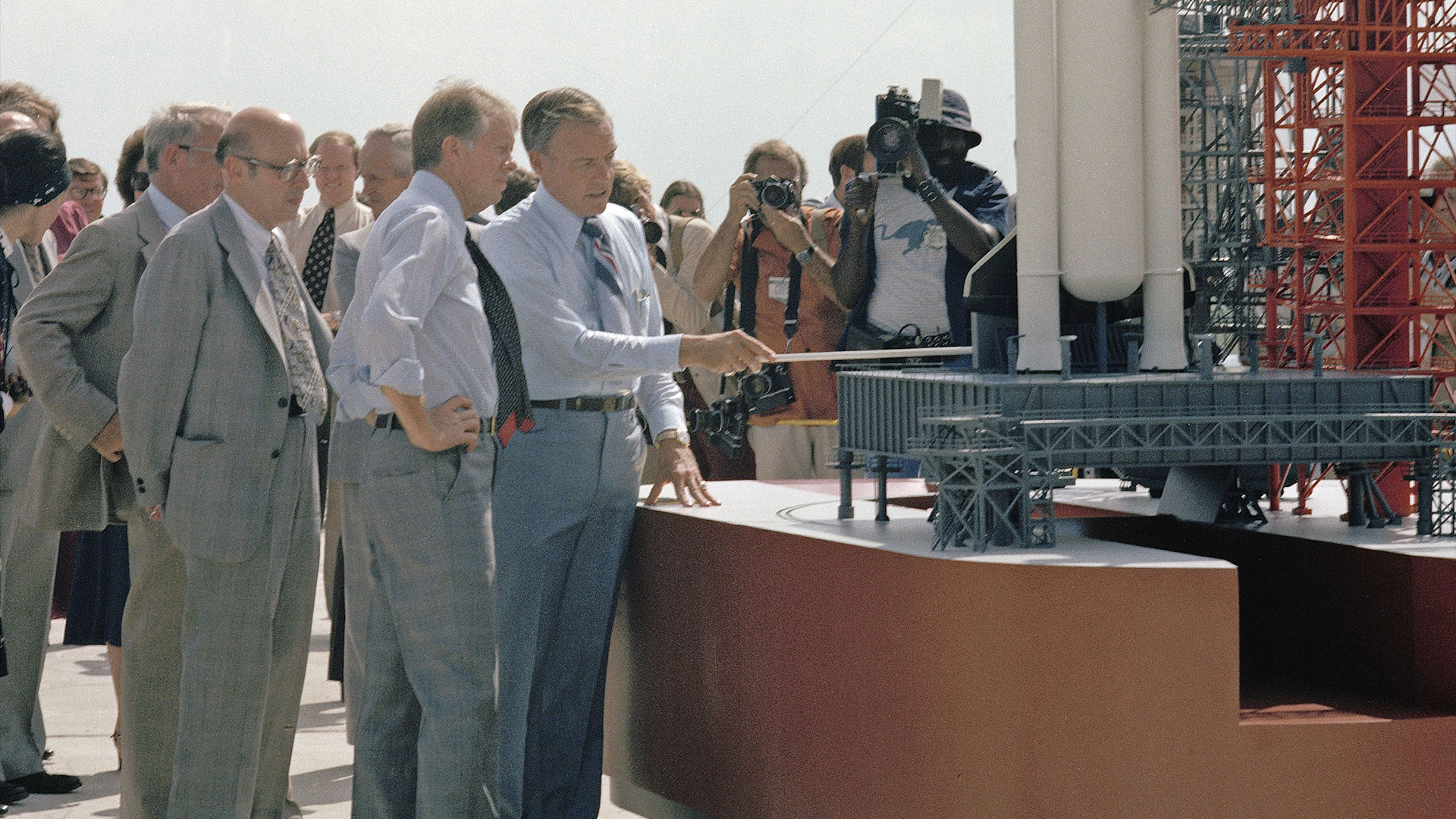
The longest-lived president in United States’ history, Jimmy Carter’s voice will continue to extend “into the cosmos” beyond his death at 100.
Carter, who died on Sunday (Dec. 29) at his home in Plains, Georgia, recorded the country’s official message that was launched in 1977 and now travels beyond our solar system on the Voyager Golden Record. He addressed his remarks to whatever civilization or species might come across the twin probes in the future: “We are attempting to survive our time so we may live into yours.”
“We are saddened by the passing of President Jimmy Carter, who contributed to the Voyager Golden Record currently traveling through interstellar space,” NASA officials posted to the agency’s social media accounts. “Carter's message of peace continues to reach across the ‘vast and awesome universe.’”
Carter served as the 39th President of the United States from 1977 to 1981. In addition to being in office when the Voyager probes left Earth, he was president when NASA recruited its first women, Black and Asian astronauts in 1978, and when Skylab, the country’s first space station, fell back to Earth in 1979.
Related article: Presidential Visions for Space Exploration: From Ike to Biden
Carter’s greatest legacy to the space program, though, may be the support he gave to funding the continued development of the space shuttle. Without the additional money that NASA received in 1979 and 1980 — years in which Carter otherwise sought broad spending cuts — the iconic winged orbiter that flew for more years than any other U.S. spacecraft in history may have never left the ground.
Although Carter was known to favor NASA’s robotic missions over launching astronauts, he saw value in moving forward with the space transportation system.
“I was not enthusiastic about sending humans on missions to Mars or outer space,” Carter said in a 2016 interview with the website Ars Technica. “But I thought the shuttle was a good way to continue the good work of NASA. I didn’t want to waste the money already invested.”
On Oct. 1, 1978, Carter received an update on the space shuttle’s progress while on a visit to Kennedy Space Center for the 20th anniversary of NASA’s founding. During that same trip, Carter helped honor some of the nation’s most accomplished astronauts with the presentation of the first Congressional Space Medal of Honor awards.
The medal's first recipients included Apollo 11 commander Neil Armstrong, Gemini pilots Frank Borman and Charles "Pete" Conrad and “original” Mercury astronauts John Glenn, Virgil "Gus" Grissom (posthumously) and Alan Shepard.
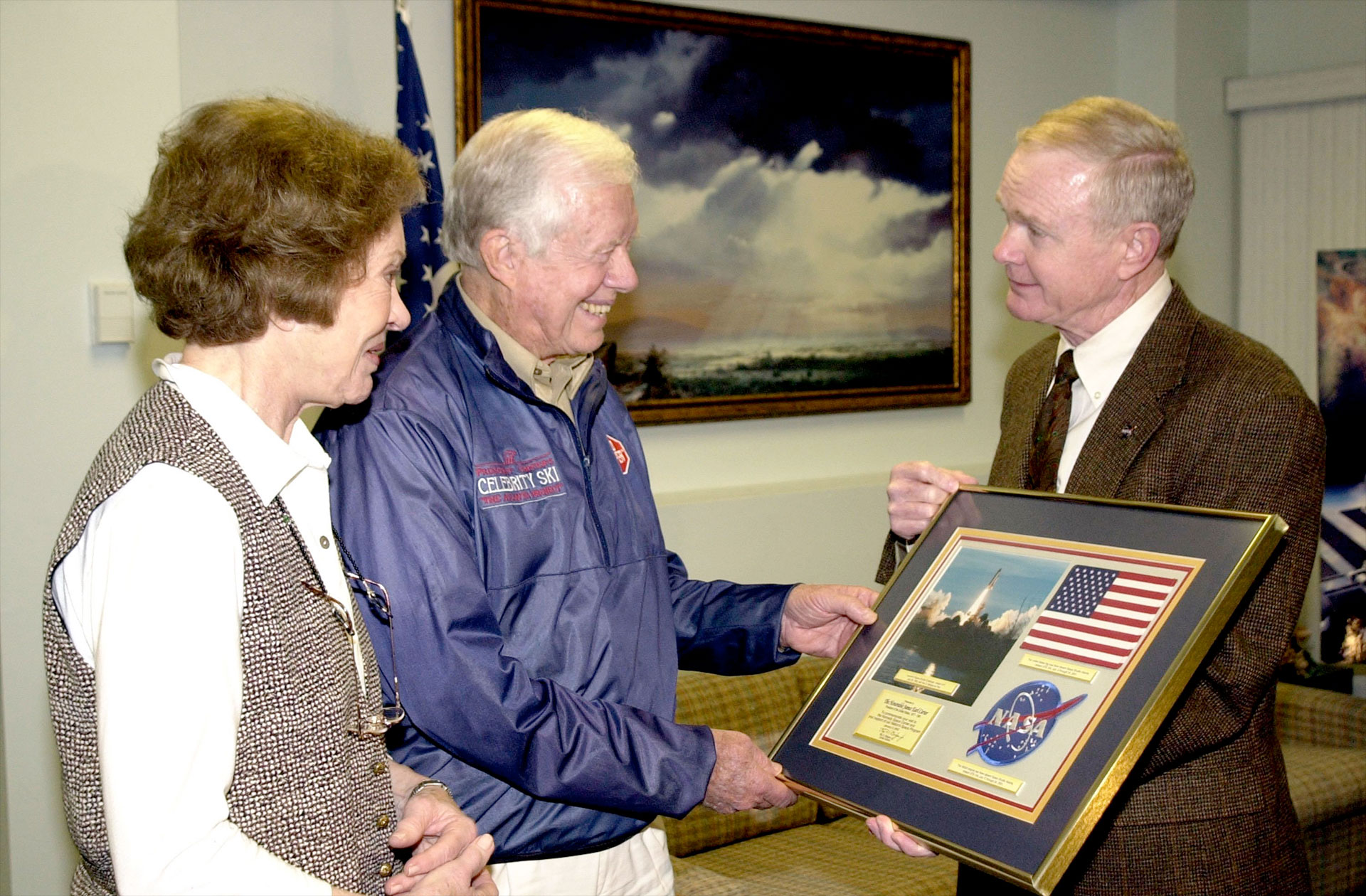
Carter and former first lady Roslyn returned to the Florida spaceport for a tour in 2002, when the then-former president met with astronauts who flew on the shuttle, including then-center director Roy Bridges.
Beyond his interactions with the U.S. space program, Carter was hailed for his decades of volunteer service after he left office. He was honored for such in 2002 with the Nobel Peace Prize.
"President Carter was the pinnacle of a public servant, dedicating his life to making our world a better place," said Bill Nelson, NASA Administrator, in a statement. "He showed us each and every person has the power to make a difference."
"From providing for those in need, protecting the environment and championing civil and human rights, President Carter was a good man who always strove to do what was right. He embodied the very best of humanity and his life and legacy are an example to the United States and the world," said Nelson.
Public memorials will be held in Atlanta and Washington, D.C., followed by a private interment in Plains, Georgia. The final arrangements for Carter’s state funeral, including all public events and motorcade routes, will be released by the Joint Task Force-National Capital Region.
According to The Carter Center, members of the public are encouraged to visit the official tribute website at www.jimmycartertribute.org. This site includes the official online condolence book, as well as print and visual biographical materials commemorating Carter’s life.
Join our Space Forums to keep talking space on the latest missions, night sky and more! And if you have a news tip, correction or comment, let us know at: community@space.com.
Get the Space.com Newsletter
Breaking space news, the latest updates on rocket launches, skywatching events and more!

Robert Pearlman is a space historian, journalist and the founder and editor of collectSPACE.com, a daily news publication and community devoted to space history with a particular focus on how and where space exploration intersects with pop culture. Pearlman is also a contributing writer for Space.com and co-author of "Space Stations: The Art, Science, and Reality of Working in Space” published by Smithsonian Books in 2018.In 2009, he was inducted into the U.S. Space Camp Hall of Fame in Huntsville, Alabama. In 2021, he was honored by the American Astronautical Society with the Ordway Award for Sustained Excellence in Spaceflight History. In 2023, the National Space Club Florida Committee recognized Pearlman with the Kolcum News and Communications Award for excellence in telling the space story along the Space Coast and throughout the world.

